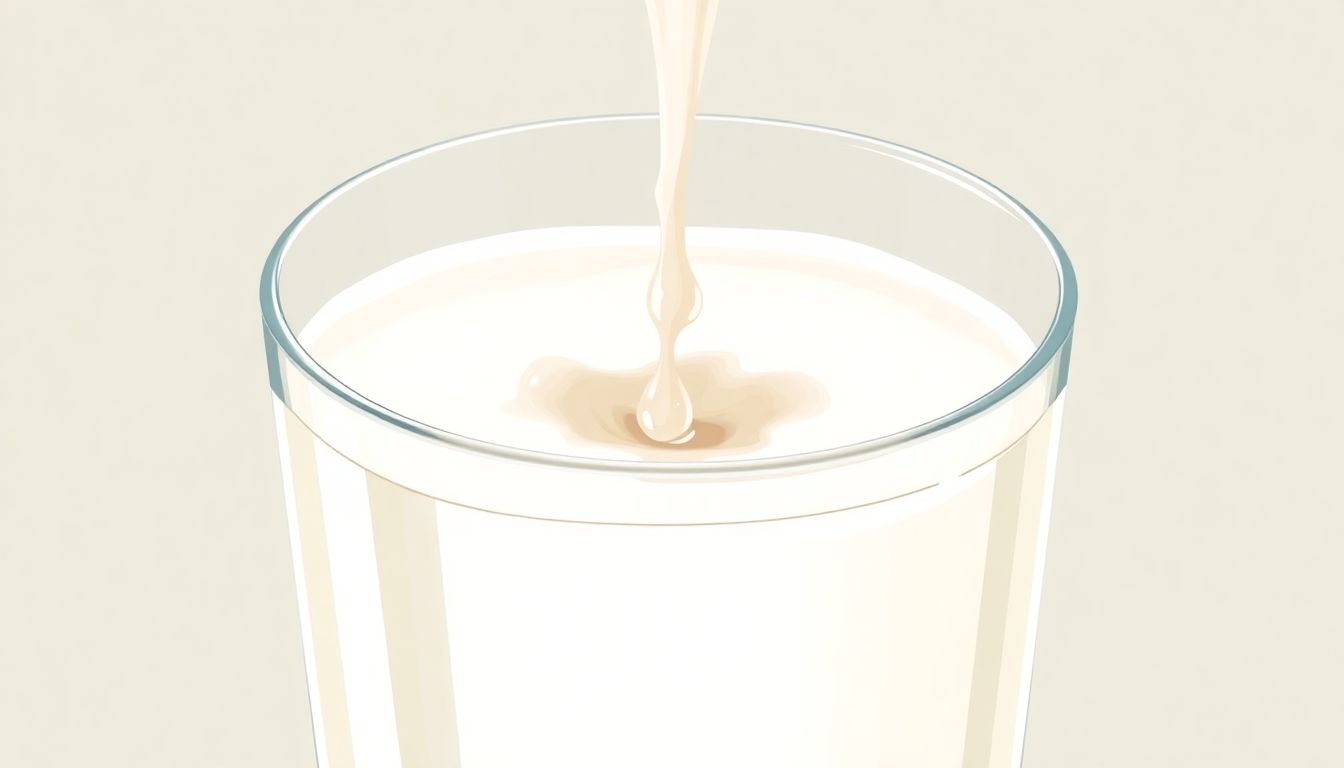
Is Drinking a Liter of Milk Daily Dangerous? A Comprehensive Guide
The topic of milk consumption stirs up many opinions. Some people swear by it as a health staple, while others warn against potential dangers. This article aims to sort through the noise and provide clear insights on drinking 1 liter of milk every day.
The Allure of Daily Milk Consumption
Many enjoy milk for its rich taste and unique texture. For others, it’s a go-to source of nutrients like calcium and protein. But is it safe to drink a liter every day? It's essential to weigh both benefits and risks before deciding if this habit is for you.
Exploring Potential Risks: Fact vs. Fiction
While milk has benefits, it could also pose risks to some people. Understanding these aspects is crucial for safe consumption.
Setting the Stage: This Article's Focus
This article focuses on your health, potential benefits, and risks when drinking 1 liter of milk each day.
Potential Benefits of High Milk Consumption
Calcium Intake and Bone Health: Scientific Evidence
Calcium is vital for strong bones. Drinking milk regularly provides a rich source of this mineral. Studies suggest that individuals, especially children and teens, who consume enough calcium may experience stronger bones and lower risk of fractures.
Muscle Function and Protein Content: A Closer Look
Milk is not just about calcium. It contains high-quality protein, which is essential for muscle repair and growth. A liter of milk has about 32 grams of protein, making it an excellent choice for those engaging in physical activities.
Milk as a Source of Essential Nutrients
Beyond protein and calcium, milk offers other key nutrients:
- Vitamins: Vitamin D helps absorb calcium, while B vitamins aid metabolic processes.
- Minerals: Phosphorus and potassium support overall health.
Potential Risks Associated with High Milk Intake
Lactose Intolerance and Digestive Issues
Some people struggle with lactose, the sugar found in milk. If you’re lactose intolerant, consuming a liter daily can lead to uncomfortable symptoms such as bloating, gas, and diarrhea.
Potential for Weight Gain and Increased Caloric Intake
Milk contains calories. A liter holds around 600 calories, which can add up if not managed within your diet. Regularly drinking excessive calories could lead to weight gain.
Interactions with Certain Medications
Certain medications may not mix well with large dairy intake. It's crucial to consult a doctor to ensure you’re not hindering your treatment.
Milk and Your Heart Health: Separating Fact from Fiction
Milk Fat Content and Cholesterol Levels
Milk contains saturated fats, which can influence cholesterol levels. Some studies indicate that full-fat dairy may not be as harmful as once thought, but moderation is vital.
Exploring the Role of Saturated Fat
Saturated fats can raise LDL cholesterol, often linked to heart disease. Choosing lower-fat options might help you reduce risks while still enjoying the benefits of dairy.
Current Research on Dairy and Cardiovascular Health
Recent studies show mixed results regarding dairy and heart health. Some say dairy can be heart-healthy, while others recommend limiting intake.
Individual Factors Affecting Milk Consumption
Age and Milk Tolerance
Younger individuals often tolerate milk better than older adults, who might find lactose more difficult to digest.
Pre-existing Health Conditions: Considerations
Those with certain conditions, like kidney disease, should be cautious with high dairy products. It’s best to consult a healthcare provider.
Personal Sensitivity and Reactions
Everyone is different. Pay attention to how your body reacts after consuming milk.
Making Informed Choices About Your Milk Intake
Finding the Right Balance: Moderation is Key
While milk can be part of a healthy diet, moderation is essential. Listen to your body and adjust your intake as needed.
Alternatives to Cow's Milk: Exploring Options
If concerns about milk arise, consider alternatives like almond milk, soy milk, or oat milk. These options often contain fewer calories and can be a good source of nutrients.
Consulting a Healthcare Professional: Personalized Advice
Your health is unique. Discussing your milk intake with a healthcare provider ensures you're making choices that support your individual needs.
Conclusion: Navigating the Milk Consumption Dilemma
Key Takeaways: Benefits, Risks, and Personalization
Drinking a liter of milk daily has benefits and risks. It’s packed with nutrients but may lead to intolerances or weight issues in some.
Prioritizing Informed Choices for Optimal Health
Make choices that align with your health goals. Learning about the benefits and risks lets you make informed choices that suit your lifestyle.
The Importance of Individualized Dietary Approaches
Balance is key. Always consider your body's responses, consult professionals when necessary, and adapt your diet to your individual needs for optimal health.